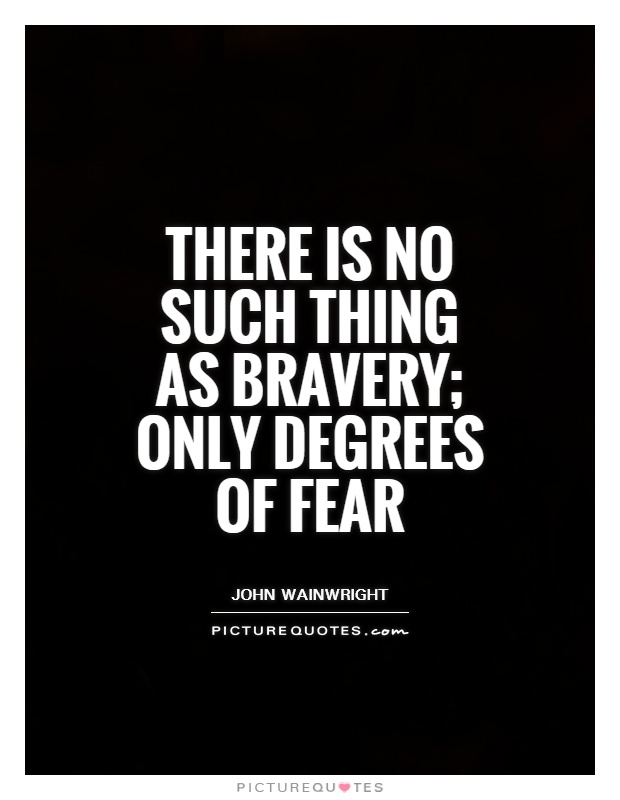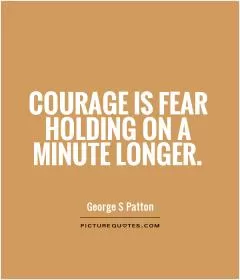There is no such thing as bravery; only degrees of fear

There is no such thing as bravery; only degrees of fear
John Wainwright, a renowned psychologist and author, once famously said, "There is no such thing as bravery; only degrees of fear." This statement has sparked much debate and contemplation among scholars, psychologists, and everyday individuals alike. Wainwright's assertion challenges the traditional notion of bravery as a distinct trait or quality possessed by certain individuals. Instead, he suggests that what we perceive as bravery is simply a manifestation of varying levels of fear.In the context of John Wainwright, this statement can be interpreted as a reflection of his deep understanding of human psychology and behavior. Wainwright believed that fear is a fundamental emotion that drives much of human behavior, including what we commonly perceive as acts of bravery. According to Wainwright, bravery is not the absence of fear, but rather the ability to confront and overcome fear in the face of danger or adversity.
Wainwright's perspective on bravery as a response to fear aligns with the principles of cognitive psychology, which emphasize the role of perception and interpretation in shaping behavior. In this view, individuals may perceive the same situation differently based on their unique experiences, beliefs, and emotions. What one person may perceive as a terrifying threat, another may see as a challenge to be overcome. Therefore, bravery is not an inherent trait but rather a subjective response to fear.
Wainwright's statement also highlights the complexity of human emotions and motivations. While fear is often seen as a negative emotion that inhibits action, Wainwright suggests that it can also be a powerful motivator for courage and resilience. By acknowledging and understanding our fears, we can learn to harness them as a source of strength and determination.












 Friendship Quotes
Friendship Quotes Love Quotes
Love Quotes Life Quotes
Life Quotes Funny Quotes
Funny Quotes Motivational Quotes
Motivational Quotes Inspirational Quotes
Inspirational Quotes